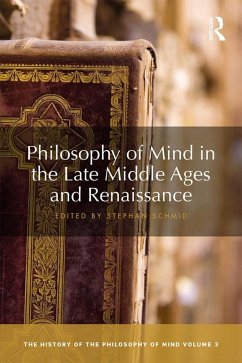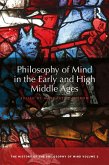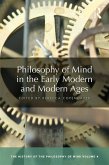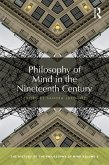Philosophy of Mind in the Late Middle Ages and Renaissance provides an outstanding survey of philosophy of mind in this fascinating and still controversial period and examines the thought of figures such as Aquinas, Suárez, and Ficino.
Following an introduction by Stephan Schmid, thirteen specially commissioned chapters by an international team of contributors discuss key topics, thinkers, and debates, including:
- mind and method,
- the mind and its illnesses,
- the powers of the soul,
- Averroism,
- intentionality and representationalism,
- theories of (self-)consciousness,
- will and its freedom,
- external and internal senses,
- Renaissance theories of the passions,
- the mind-body problem and the rise of dualism, and
- the 'cognitive turn'.
Essential reading for students and researchers in philosophy of mind, medieval philosophy, and the history of philosophy, Philosophy of Mind in the Late Middle Ages and Renaissance is also a valuable resource for those in related disciplines such as religion, literature, and Renaissance studies.
Dieser Download kann aus rechtlichen Gründen nur mit Rechnungsadresse in A, B, BG, CY, CZ, D, DK, EW, E, FIN, F, GR, HR, H, IRL, I, LT, L, LR, M, NL, PL, P, R, S, SLO, SK ausgeliefert werden.









